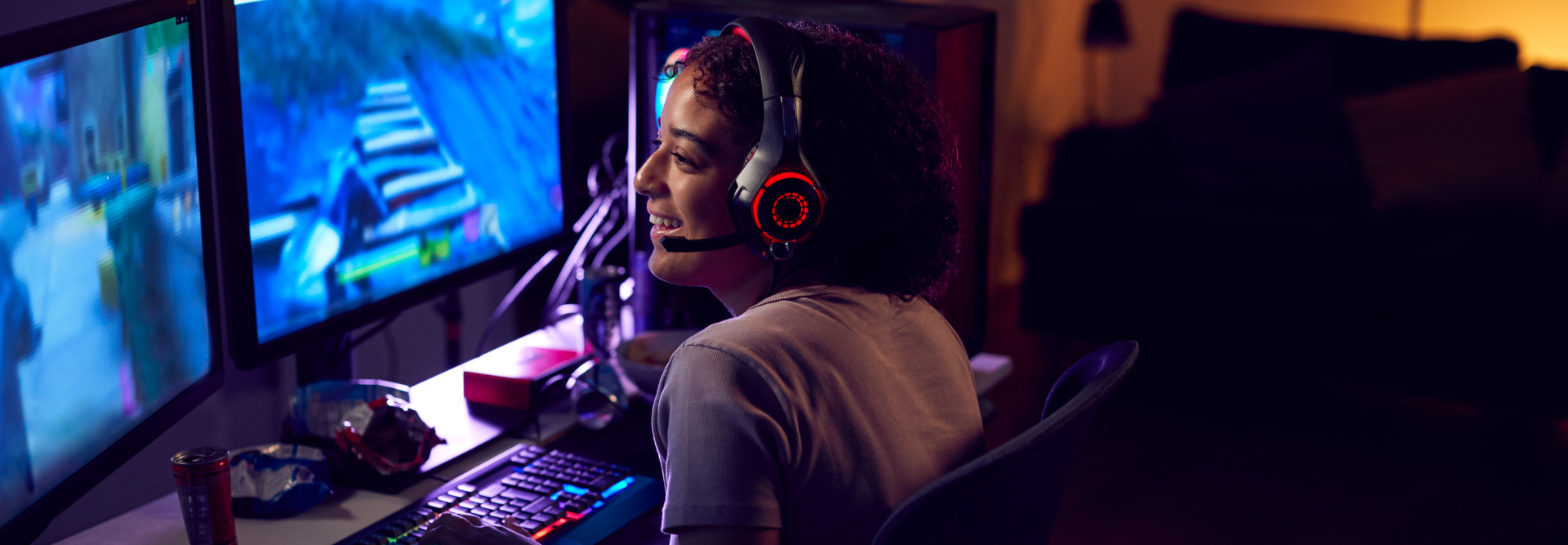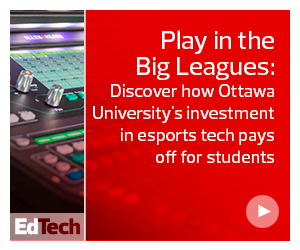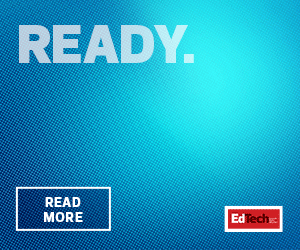In the world of college sports, there can only be so many Cam Newtons and Megan Rapinoes. However, as esports increasingly gains a foothold in higher education athletics programs, the opportunities for a new breed of all-star student-athletes are growing — no magic hands or golden toes required.
For years, college sports programs — and their scholarship opportunities — seemed attainable only to those with the perfect blend of innate talent and elite physical athleticism. Esports programs like the one at Montgomery County Community College in Pennsylvania, however, have opened up the playing field for students who want to play an active, competitive role in college athletics programs.
Building an Esports Culture of Inclusivity, Dignity and Respect
“At MCCC, our esports participants are considered varsity student athletes,” Kelly Dunbar, the school’s director of athletics and campus recreation, told online attendees during the 2020 EDUCAUSE Annual Conference. “Our program offers a holistic approach that mirrors the traditional sports model to include competition, practice sessions, physical training, nutrition, mental health and academic regimen.”
While esports does open a door for players who might not be able to run a seven-minute mile, competitive gaming has not always been a bastion of inclusivity and diversity. From the Gamergate controversy of 2014 to racist trolls who still target minority gamers online today, gaming has seen its share of ugliness and tension. At MCCC, all athletes (including esports players) are required to take an inclusivity pledge, in which they promise to “foster an inclusive community that treats every person with dignity and respect” and refrain from profanity and all types of bullying.
“Our esports program abides by the motto that ‘e’ is for everyone,” Dunbar said.
MCCC esports team player Victor Walker agrees.
“I feel like esports is an opportunity for anyone to get involved in school in a competitive way,” he said. “It doesn’t matter if you’re not strong enough for basketball or fast enough for track. You can hop in and be one of the best people on the team. I love this program because it doesn’t matter where you came from. If you give it an honest try, you’re going to do great.”
In the Esports Arena, There Are No Benched Players
MCCC student Kira Ariyamatr does not consider herself an athletic person, she told conference attendees. And when it comes to video games, she’d always gravitated to puzzle games rather than the more competitive multiplayer games that are more common among esports leagues. “I’d never played player vs. player before,” she said, “but all my friends had been playing Rocket League, and I thought it was time to pick it up.”
Now she’s a member of the school’s esports team. “The program here is very supportive,” Ariyamatr said. “It doesn’t matter if you’re new or an expert. Everyone plays together.”
When MCCC decided to explore the possibility of assembling an esports program, the IT department was engaged immediately, said Jim Stasik, the school’s director of enterprise infrastructure. “It was important that all the technical and facility aspects of bringing an esports program to life were considered,” he said.
When the pandemic hit, Stasik told listeners, the esports team was able to use its existing equipment and assets remotely, allowing players to remain engaged and active. “The team continued to use the Discord platform to stay in communication with each other,” he said. “They also continued to stream live using Twitch, which is the world’s leading streaming platform for gamers.”
Putting in place the necessary facilities and resources to begin the team, he said, took a minimal investment, and the school was able to launch its program with just a year of planning and preparing. The program strives, said Dunbar, to provide its student players with everything they need in order to succeed, both in their gaming and academically.
“We make it easier for student-athletes to participate by offering in-person esports arenas at both of our campuses as well as a virtual option,” she said. “We also have a wide range of skill levels that allow for growth within our program.”













